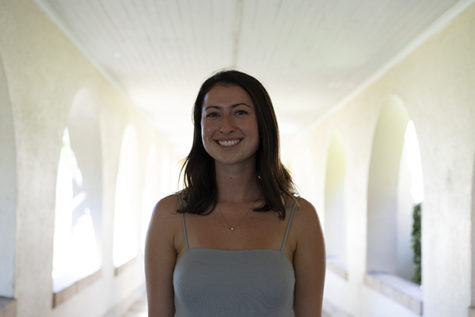9 MIN READ
There’s an absence of laughter in the once animated neighborhood. Streets are now vacant; the lack of youth draining it of the neighborhood’s prior vibrancy. No longer are children playing outside, rather, they sit stiffly inside, awaiting standardized direction. One by one, they flip through the plans of an itinerary, their days planned to the minute, their brains set on autopilot.
The buzz of liveliness that once dominated neighborhoods is lost, and although some kids are being raised to believe so, there is not a single agenda on the planet that details the steps to it’s recovery. Entangled in the constrictions of societal pressure and competitive edge, many lose sight of what slips through the fingers of a constantly stimulated generation. Most notably suppressed is the ability to access creativity, formulate individualized opinions and perspective, and develop independence. And so, the solution lies hidden in a feeling feared by parents and children alike: boredom.
In Silicon Valley and beyond, there is a constant pressure to drive our lives forward into something more rewarding, continually reaching for greater success. Voids of free time are increasingly replaced with countless activities to of “merit” in an attempt for individuals to align themselves with the speed of their community. The difficulty with this over-occupied lifestyle is that it begins manifesting itself among generations of youth, as parents reinforce and reconstruct their children’s lives to best suit “success” in their communities. Stephanie Brown is a clinician, teacher, and author who studies the concept of speed; more specifically, she investigates modern society’s craving for an over stimulated lifestyle. “We live in a business-model, fix-it culture, dominated by a singular focus on the outcome. There is only forward movement; there is only progress. You are winning or you are losing,” Brown said.
Our culture has made it difficult to step away from the busyness that their lives entail. “Society’s addiction to speed is a tangled necklace of out-of-control behaviors fueled by emotions of fear and desperation,” Brown said in her recent article, “When Chaos Rules: Society’s New Addiction to Speed and its Impact on Treatment and Recovery.” The article goes on to express how technology impacts this lifestyle of everlasting speed, “A belief that you shouldn’t have any limits on how fast you can go, how much you can do, or how many topics you can focus on at once.”
Technology has proposed the same opportunity to fill the void of boredom, and is becoming increasingly sought by younger generations who reach for it to escape brief bouts of boredom. Brown foresees our dependence on business by re-establishing the importance of moving slower; “what we sacrificed and need to go back to is the importance of being slow enough that we can look inward, that we can look at boredom, quiet time, self-reflection, as the heart of what will ensure our ability to think, feel, understand ourselves, make decisions.”
Following busy schedules into the line of youth, there’s been a growing distrust in children’s freedom of mind to do something beneficial in unstructured periods of time, further enforcing this culture. This mindset can often push parents with the resources to do so, to schedule every possible opportunity for their child. In the process, however, children become uncomfortable with the prospect of free thinking. Accompanying this internal unease is the obvious external pressure from parents, viewing their children’s peers as competition rather than friends. “Comparison is the thief of all happiness,” Gavin Newsom, governor of California, said in his visit to Palo Alto High School. “When you start comparing yourselves to each other or to other people and you start getting stressed out that you’re not good enough…that diminishes you.” Newsom’s concerns represent the flourishing, culturally based argument that we are becoming increasingly dissatisfied with the way in which our time, and even lives, are being utilized. The comparison of children to one another is one root of parents’ need to get their kids ahead, hindering children’s natural path of creativity and freedom.
Children’s psychologist, Christopher Chiochios, has seen how this lifestyle is impacting our attempts to keep up with our communities. “Society, especially a first world society, is moving. Everything is moving so fast and you have to respond instantaneously, you have to get things done very quickly, you have to do multiple things at a time.”
Due to this new standard of occupying time, we have ultimately denied children the ability to detach from the incessant buzz of reality. Amidst this systematic reorientation of the average child’s mentality, it has become a privilege to sit idly, and not race against the taunting tick of a clock. Julie Lythcott-Haims, author of “How to Raise an Adult,” touches upon the counterproductive elements of excessive interference of parents in their children’s recreational time. “Once parents got involved in scheduling, organizing, planning, and handling play, we lost the concept of “free play” which developmental biologists and psychologists say is essential to the healthy development of kids,” Lythcott-Haims said.
This perpetual nourishment makes it increasingly difficult for children to explore the depths of their own mind, which is only accessible without distractions. In fact, one’s constant scheduling with a lack of free time rids the brain of its default mode: the state in which our brains rest when not engaging in activities. According to University of Central Lancashire psychology professor Dr. Sandi Mann, this mode is when our brain actually becomes active, as it allows us to tap into our subconscious and evaluate intricate ideas. Therefore, when children are perpetually stimulated, jumping from school to extracurriculars, they are depleting nutrients in the brain essential for creativity. As the brain engages in a neurochemical switch with each transition of a task, it isn’t given the time to delve on one concept for long.
If anything, boredom is a lot more enjoyable for kids than parents perceive from irritated sighs and declarations: “I’m bored.” As parents designate their kids’ path, these children become dependent on the guidance of others in all aspects of their lives. We have lost faith in the abilities of a child’s inquisitive mind and nature. Why are we overlooking such a promising gift that boredom offers, one that incites creativity, personal thoughts, and independence? It is time to question why we have become so uneasy with being at peace with our own prevailing thoughts. First grader in Palo Alto, Harper Krattiger, finds that when she allocates time away from her busy schedule, she’s able to use this break to investigate more about her individuality. Whether she chooses to read or paint in the art studio, she’s able to discover her own passions through her imagination and believes that kids all around should have downtime as well.
“I think that [children] should have as much free time as they need and want, so that’s different for every child. For maybe younger children and some children that just love to play, they might only want to have at the most one activity a week, just to make sure they have plenty of free time to play with friends,” Krattiger said.
If allowed, most kids fill up their downtime in varying ways. Middle schooler Jeremiah Guevara Cabrera has a more imaginative outlook when it comes to free periods of time.
“There is nothing specific that I think about. When I lie down and stare at my ceiling, random things just flow through my mind,” Guevara Cabrera said. “Yesterday I was thinking about how cool it would be to be a superhero with powers! I really just enjoy sitting back and seeing where my thoughts take me.”
Boredom is also a natural occurrence that poses a way for kids to endeavor on a journey of personal growth. As a young girl growing up in New Mexico, Sylvia Acevedo, CEO of Girl Scouts, was determined to play the timbales but was told she didn’t have the strength required to carry the weight of the instrument. This only strengthened her determination to play it each day she got home from school, where she would spend her time collecting large rocks and throwing them to build muscle. The unstructured time she was given is what enabled her to push herself to pursue her interest and fortified her self-assurance. Reflecting back on the impact that unstructured time had on her as a child, Acevedo is “grateful for all of that free time where I could work out and get strong in my own makeshift way…It gave me confidence and it gave me resilience.”
Acevedo believes that the doubt directed towards her as a young girl is what helped her tackle later difficulties she experienced as a woman. When pursuing her dream to become a rocket scientist at NASA, she was told she was not smart enough and did not have the skills required to be successful in the job. “If I was an adult and never had that experience [as a kid], I might have just stopped there,” Acevedo said. Seen in Acevedo’s ability to adapt to unforeseen situations, the utilization of our free time as children can play a large role in how we deal with larger problems in our futures.
Boredom does not just allow us time, boredom leads our minds to soak up our surroundings and discover. Carlo Rovelli, the author of “Seven Brief Lessons on Physics,” reflects on his own personal experience with discovery in the silence of nature. With the goal of comprehending Einstein’s theory of relativity, Rovelli immersed himself in extensive research but remained unable to comprehend what the theory was proposing. It was not until Rovelli took a break from his studies, that he was able to reach a greater capacity to perceive and observe.
Recognizing the capabilities of his secluded mind, allowed him to approach his understanding of the theory from a different angle. “I remember the excitement I felt when I began to understand something about it. It was summer. I was on a beach a beach at Condofuri in Calabria, immersed in the sunshine of the Hellenic Mediterranean, and in the last year of my university studies.” Spending unstructured time, is what allowed him to understand the theory. “Every so often I would raise my eyes from the book and look at the glittering sea: it seemed to me that I was actually seeing the curvature of space and time imagined by Einstein.”
Despite the accomplishments that can be made through boredom, parents shield their children from the natural occurrence. However, if we do not allow children to experience boredom, we are actually inhibiting their success later in life because we are stripping them of personal growth and development. When a kid’s life is entirely structured by other people (i.e. parents) they’re not independent,” Lythcott-Haims said. “This means not only that they don’t get to express and grow their creativity – also they don’t have a chance to make choices for themselves, deal with their own mistakes, and that means they’re not developing the skills they need in order to be independent.”
As a young girl, Kiana Tavakoli, junior at Paly, used the fields upon fields covered in flowers as an escape from the real world. As a young girl, Tavakoli played hide and seek, threw tea parties and attended fake weddings for her pets. Tavakoli spent the first 10 years of her life living in Cape Town, South Africa where she explored and played, as children should, rather than being shuffled from activity to activity. No matter what Tavakoli was doing, it was always something of her choice and a product of her imagination, helping shape her into who she is today.
“My parents always told me that it was good to be independent so I’ve always had that in the back of my mind,” Tavakoli said. “I also almost never asked my parents for help with schoolwork and rather pushed myself to figure it out alone. As I grew up, this independence continued to grow as well.” Today, this independence can be seen as Tavakoli will run errands or just simply walk to class alone, which may not seem huge, but shows far more independence than her peers are comfortable with. Like everything else, independence requires practice, and as Tavakoli has been exercising individuality for virtually her whole life, it will and allow her to thrive throughout her future.
Seclusion and independence: the two go hand-in-hand. If one does not spend time with themself, how will they be able to go out into the world alone and independent? Would they instead choose to surround themselves with others for all public outings?
Hannah Shader, a junior at Paly, finds her seclusion in mountain backpacking to help hone in on her own thoughts and self. It may be difficult to imagine how one would not face miserable boredom in this primitive state of isolation for days, but Shader says, “It’s hard to get bored. You have your footsteps to focus on as well as what you’re thinking of.”
Once you commit to your mind and your thoughts, they can repeatedly surprise, overwhelm and entertain you. “I could go backpacking constantly listening to music or podcasts, but I intentionally don’t do this so I can focus more on the nature around me,” Shader said. Backpacking is Shader’s time to reflect her emotions and become more self-aware. Immersing oneself in the quietude of nature can also be vital for self-esteem and self-acceptance. Elana Maslow, an Outward Bound backpacking leader, considers outdoor excursions to be an incredibly beneficial tool for personal development that translates into many situations. “Being in the outdoors helps you overcome challenges and feel good about yourself in the normal world,” Maslow said. If you do not take the time to become comfortable with your own thoughts, ambitions, and projects, you will not be confident in them or yourself. Mary Hamershock, VP of HR at Google, agrees. “Personal time outside of work is important to creativity,” Hamershock said. Google implements a unique ‘20-time’ policy for their engineers to strengthen individual creative confidence and innovation. Employees are encouraged to dedicate twenty percent of their time to personal projects that benefit google, resulting in products like Gmail. “Creativity and innovation are essential to growth for companies. Customers are restless and they expect excellence, they also love modern, fresh solutions. Innovation is that tension when the ‘old way of doing things’ meets up with new possibilities. This is fueled by creativity and while crucial in Tech, is equally important in every other industry.” Hamershock said. So sit down, kick up your feet, stare at the ceiling—simply relax and let your thoughts flow through your body.
Whether it’s walking to class, waiting at a stoplight, or taking a shower, there are countless opportunities to let our empty, personal thoughts inhabit our mind. Nonetheless, many not only underutilize them but avoid them completely. Even when given short allotments of time to ourselves, we scavenge for ways to break free from the daunting nothingness.
Seemingly, one of the only moments we have to step back and truly think freely is within the security of a warm stream of water. As the water pools at our feet, seeping through the holes of a metallic drain, the only matter left to permeate through the expanse of the washroom is our thoughts. Truthfully, the shower is one of the few environments in which we allow ourselves to be distraction-free, contrasting in comparison to how normal the occurrence of these thoughts in our daily routine used to be. Although it’s difficult to once more regain the ease that was once felt in the presence of boredom, it is time that these “shower thoughts” re-enter our everyday lives. In Psychology Today, psychotherapist Nancy Colier explains that this fear of boredom stems from a belief of that time being spent with no sense of purpose, and the unrelenting need to constantly occupy a child’s time. In order to rediscover these lost thoughts, we need to embrace an emptiness that we’ve been conditioned to doubt. “The truth is we’ve lost faith in our kids’ imaginations, and the power of human creativity—to generate something when it needs to,” Colier said.





